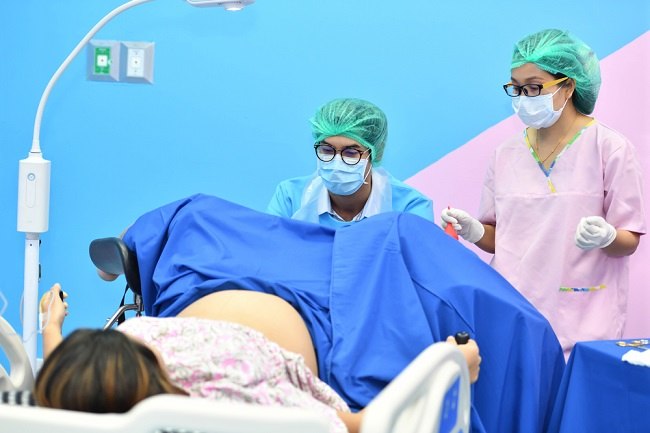Although it can be used as a cancer treatment, there are side effects of radiotherapy that may arise. The effect can be different for each cancer patient. Some are mild and some require serious treatment from a doctor.
The side effects of radiotherapy that appear can vary, depending on the type of cancer, the part of the body affected by cancer, the intensity of radiotherapy, and the patient's overall health condition.

Generally, the side effects of radiotherapy that appear are temporary because they usually disappear after radiotherapy is finished.
Various Side Effects of Radiotherapy
Radiotherapy or radiation therapy is a cancer treatment that uses X-rays to kill cancer cells lodged in the body. Although it can stop or inhibit the growth of cancer cells, this treatment can trigger side effects.
Radiotherapy side effects arise because this action can also damage healthy cells that are around cancer cells. These side effects can be:
1. Fatigue
The side effect of radiotherapy that often appears is fatigue. This fatigue generally appears after a few weeks of radiotherapy and is triggered by the destruction of healthy cells around cancer cells due to radiotherapy exposure.
Fatigue that appears due to this treatment is different from fatigue caused by daily activities, because the fatigue that appears can last a long time until the treatment is finished. The level of fatigue that appears can be mild, moderate, or severe depending on the patient's health condition.
2. Skin disorders
Skin exposed to radiation may experience redness, irritation, swelling, blistering, burning, or tanning. After a few weeks, this area of skin may also become dry, scaly, itchy, and peeling. Generally this condition will disappear gradually after treatment ends.
3. Hair loss
Radiotherapy can cause side effects in the form of hair loss, even eyelashes and eyebrows may also experience loss. Usually this complaint occurs in radiotherapy carried out in the area of the head and its surroundings.
Hair loss usually subsides after radiotherapy is complete. The patient's hair will return to its body, but the strands will be thinner or the hair texture will be different than before.
4. Loss of appetite
Radiotherapy can cause loss of appetite. Usually, this condition is experienced during radiotherapy in the head, neck, and parts of the digestive system such as the stomach.
Those of you who experience this complaint need to adopt a healthy diet so they don't experience fatigue and malnutrition. The trick is to keep eating healthy foods and dividing them in small portions, ie 5-6 meals a day.
Then try some mouth-watering new food recipes. If necessary, provide a healthy snack, so you can immediately eat it when you feel hungry.
5. Problems with the mouth
Radiotherapy also triggers problems with the mouth, such as canker sores, little or thick saliva, difficulty swallowing, and a stiff jaw. Usually this complaint appears on radiotherapy of the head and neck area.
Those of you who experience this complaint after radiotherapy are advised to avoid consuming spicy and acidic foods, quit smoking, stop consuming alcoholic beverages, and brush your teeth with a soft toothbrush and fluoride toothpaste.
In addition to triggering problems in the mouth, radiotherapy can also cause nausea and vomiting. This condition usually occurs in patients receiving radiotherapy to the head, neck, and abdomen.
6. Hearing loss
The next possible side effect of radiotherapy is hearing loss. One reason is that radiotherapy can harden wax in the ear, which can cause hearing loss.
7. Diarrhea
Radiation therapy, especially in the abdominal area, can trigger diarrhea. Usually these complaints appear after a few weeks of radiotherapy is done. The doctor may advise the patient to eat small but frequent meals, avoid high-fiber foods, and prescribe certain medications to help with diarrhea.
In addition to temporary side effects, there are also side effects that persist and appear late, months or years after radiotherapy, for example radiotherapy to the neck, head and chest area, which can damage the thyroid gland, causing hypothyroidism.
Another possible side effect is getting a different type of cancer later in life. This risk does exist, but you don't need to worry too much, because the risk is relatively small compared to the benefits of radiotherapy itself.
The side effects of radiotherapy are varied and can vary from patient to patient. Therefore, if you are or will be undergoing radiotherapy, talk to your doctor about the possible side effects. Follow the doctor's advice so that the radiotherapy treatment that is carried out produces maximum results.









